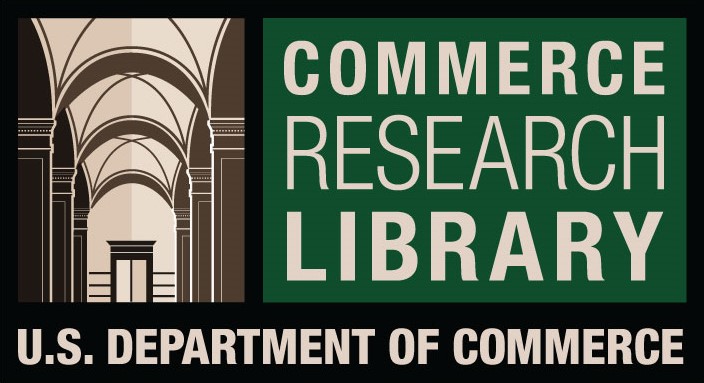Child Punishment between Incentive and Aggression From the Viewpoint of Mothers and Teachers
DOI:
https://doi.org/10.61841/z29k1q13Keywords:
Child, punishment, Incentive, AggressionAbstract
The aim of the current research is to reveal whether the punishment of children is an incentive or an aggression from the viewpoint of their mothers and teachers. To achieve this, the scale was constructed which consist of (19) item that represent the behavior of mothers and teachers with their children, and the items were united by two main choices as: an incentive and an aggression (and both options consist of three alternatives: Considered incentive (large, medium, and weak) and Consider aggression (large, medium, and weak). The psychometric properties of the scale were verified by extracting the apparent validity and validity of the peripheral comparison, as well as the reliability of the test-retest method and it reached (88.0) for the paragraphs side when it is considered an incentive and (83.0) for the aspect of the paragraphs when it is considered aggression. The results showed that the teacher indicates that the punishment of children is an aggression rather than an incentive, and the vice versus for mothers.
Downloads
References
1. Abu Jaber, Majed and others, (2009): Parents' perceptions of the problem of child neglect and abuse in Jordanian society, The Jordanian Journal of Educational Sciences, Volume (5), Issue (1), Al-Balqa Applied University, Amman, Jordan, pp (15 - 44).
2. Idris, HijaziYasn, and Al-Hamami, Hamad bin Saif, (2011): Positive Discipline in an Inclusive, Learning- Friendly Classroom, UNESCO Office, Kingdom of Saudi Arabia.
3. Touq, Mohiuddin and Adas, Abd al-Rahman, (1984): Fundamentals of Educational Psychology, England, John Wiley and his sons.
4. Dawood, Jassim Muhammad, (2004): Modern methods of raising a child, Aalam al-Thaqafa House for Publishing and Distribution, First Edition, Amman, Jordan.
5. Al-Shayeb, Abdel-Hafez, (2009): Foundations of Educational Research, Wael Publishing and Distribution House, First Edition, Amman, Jordan
6. El-Sherbiny, Lutfi, (dt): Dictionary of Psychiatric Terms, Kuwait, Kuwait Foundation for the Advancement of Sciences
7. Al-Assali, Adeeb, (2008): Fundamentals of Protecting Syrian Children from Abuse and Neglect, Damascus, Higher Institute for Population Studies and Research
8. Al-Anani, Hanan Abdel-Hamid, (2000): Children, Family and Society, Safaa House for Publishing and Distribution, First Edition, Amman, Jordan.
9. Sane, Fakher (1988): The Dictionary of Psychological Sciences, ed. Beirut 1, Dar Al-Raed Al-Arabi
10. Ashwi, Mustafa, (2005): Corporal Punishment of Children and Alternative Methods, Education Journal, Issue (154), Kuwait, pp (182-202).
11. Al-Ezzah, Saeed Hosni, (2002): The Psychology of Childhood Development, Publisher, The International Scientific House for Publishing and Distribution, First Edition, Amman, Jordan.
12. Vandalin, B Deobold, (1985): Research Methods in Education and Psychology, 1st Edition, House of Arab Thought, Cairo, Egypt
13. Fouad, Philip, (dt): An attempt to find alternatives to corporal punishment, Egypt The National Center for Child Culture
14. Al-Kaaba, Muhammad Sanad, (2006): Family Disturbances and their Relationship to Juvenile Delinquency, Dar Al-Thaqafa for Publishing and Distribution, First Edition, Amman, Jordan.
15. Al-Maashi, Muhammad bin Ali bin Masawi, (2009): Social upbringing and its relationship to personality assessment of a sample of delinquents and non-delinquents in the Jazan region, unpublished doctoral thesis, Umm Al-Qura University, Saudi Arabia.
16. Malak, Badr Muhammad, Al-Kandari, LatifaHussain, (d. T): Correction of the child by beating in Islamic educational thought, College of Basic Education, Kuwait.
17. Mograni, Karima, (2015): The Relationship of Parental Treatment Styles with Psychological Consensus among High School Students, Master Thesis, Faculty of Social Sciences and Humanities, University of CléMohandOulhaj, Bouira, Algeria.
18. Najjar, Farid, (2003): Encyclopedic Dictionary of Education Terms, 1st Edition, Lebanon, Lebanon Library Publishers.
19. Nassif, Safia, (1989): The family is the first responsible for the culture of the child, Journal of Towards a Better Arab Childhood, The Arab Council for Childhood and Development, First Edition, Cairo, Egypt.
20. Nasreddin, Jayer, and Al-Hashemi, Lucia, (2006): Basic Concepts in Social Psychology, Dar Al-Hoda Printing and Publishing, First Edition, Ain Melilla, Algeria.
21. Al-Nashif, Hoda Mahmoud, (2011): Family and Child Raising, Al-Masirah House for Publishing and Distribution, First Edition, Amman, Jordan.
22. Wolffock, Anita, (2010): Educational Psychology, translated by Salah al-Din Mahmoud Allam, 1st Edition, Amman Dar, The Thought Publishers and Distributors.
23. Ollendick,T.H,Dailey,&shapiro,E.S,(1983):Vicanousreinforcemen Expected and unexpected effects, Journal of Apphed Behavior Analysis
24. UNICEF, (2014 a): Hidden in Plain Sight. A statistical analysis of violence against children, UNICEF, New York.
Downloads
Published
Issue
Section
License

This work is licensed under a Creative Commons Attribution 4.0 International License.
You are free to:
- Share — copy and redistribute the material in any medium or format for any purpose, even commercially.
- Adapt — remix, transform, and build upon the material for any purpose, even commercially.
- The licensor cannot revoke these freedoms as long as you follow the license terms.
Under the following terms:
- Attribution — You must give appropriate credit , provide a link to the license, and indicate if changes were made . You may do so in any reasonable manner, but not in any way that suggests the licensor endorses you or your use.
- No additional restrictions — You may not apply legal terms or technological measures that legally restrict others from doing anything the license permits.
Notices:
You do not have to comply with the license for elements of the material in the public domain or where your use is permitted by an applicable exception or limitation .
No warranties are given. The license may not give you all of the permissions necessary for your intended use. For example, other rights such as publicity, privacy, or moral rights may limit how you use the material.









